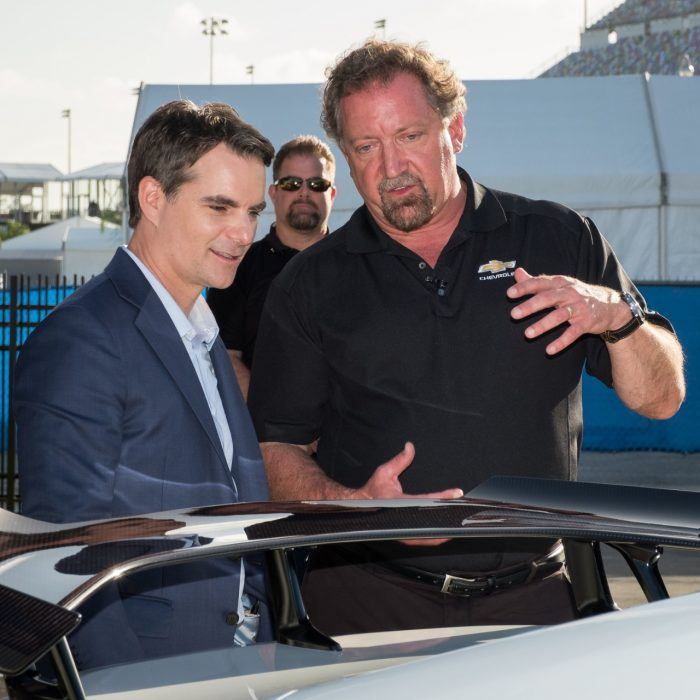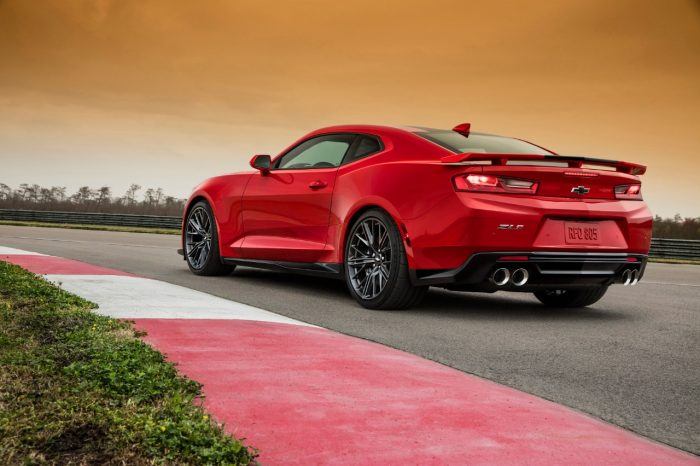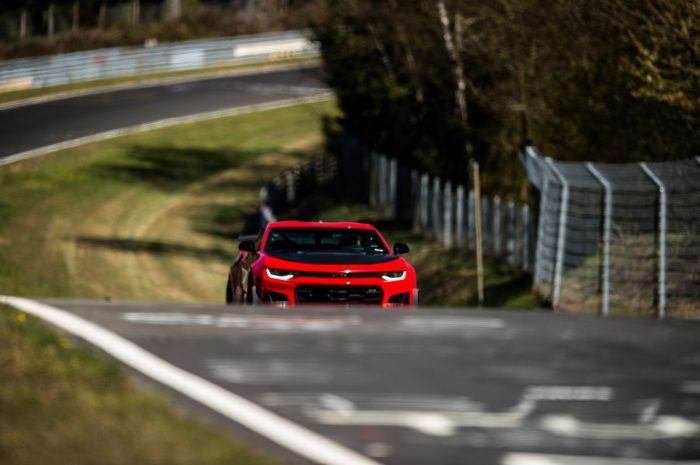Here at home, it’s really something to catch a game at Comerica Park. Nothing beats watching one of our beloved Tigers launch a ball over the Chevrolet Fountain. Everyone cheers, water flies into the air, and a fierce growl emits from the loudspeakers. Buildings, both new and old, of a scarred but great city surround the park and look down on the field. It’s enough to make anyone love the game, yet it goes deeper.
Pizza Pie & Performance Cars
There was once a young man who played for the Tigers. He grew up to own them. Detroit can and will change things – it makes things that seem impossible possible. It’s the very nature of this place and it’s hard to explain exactly how it happens, but it does. For all the hardships this city endured, for as bad as things have been, that line extends the other direction in equal fashion. Only here could a minor leaguer become a sports franchise owner in a single lifetime. But he wasn’t the only thing here that started in an unlikely place and ended up someplace special.
A Camaro is often parked on the Chevy Fountain. Fitting. Because only here – only in Detroit – could your grandfather’s Cadillac become an extremely fast performance car.
More Than Meets The Eye
Chevy’s muscle car had disappeared for eight years until a cyborg superhero imprinted himself on the legendary machine. Donning a new body style, Bumble Bee gave us every reason to get excited about the car’s return in this sleek variation. Granted, Bumble Bee defeated Barricade (a Ford Mustang funny enough) in a classic Camaro skin, but that legacy inspired the Chevy team when designing the fifth generation.
“We went back to what made the car popular from the beginning, which were the certain design ques, like the long dash to axel, the long hood, the strong rear shoulders, and the horizontal lamps,” explained Al Oppenheiser, Camaro Chief Engineer. “We kept the DNA from the original Camaro and we modernized it.”
The fifth generation Camaro debuted to much acclaim, winning 2010’s World Car Design of the Year title. That same year, Camaro landed a Best-in-Class Ideal Vehicle Award from AutoPacific. The bar was certainly raised but moving it higher for the sixth generation meant actually dropping one critical thing.
“The fifth generation was saddled with a lot of comments on how heavy it was, so we took what worked in the fifth generation from a design standpoint and we sent it to the gym if you will,” Oppenheiser said. “For this new generation, we decided the biggest thing we wanted to do was lighten the vehicle up and make it stronger and faster than the fifth generation.”
And this is where one storied GM marque arrives to help another.
“We were able to come up with our Cadillac architecture which allowed us to take anywhere from 225 to 390 lbs. out of the car from what it was in the fifth generation,” Oppenheiser continued. “The architecture of this generation is based on the same as the Cadillac CTS, so it allowed us to use a lot of new, lighter weight materials that are stronger than the traditional steel that was in the fifth generation.”

The 2014 Camaro Z/28 featured a hand-assembled LS7 427 cid engine that delivered 505 horsepower and 481 lb-ft. of toque. The Z/28 also had specific cooling systems and a fully integrated aerodynamic package. Photo: Chevrolet.
Drawing Board Mentality
Oppenheiser and his team examined and analyzed the competition, determined to separate the Camaro from the performance car pack. Once the stronger, more versatile Cadillac architecture was in place, the team went after the suspension, then the engines; and all the way through the entire car, top to bottom, front to rear.
“When we started out, we did so on a clean sheet of paper for what the sixth generation was going to be,” Oppenheiser explained. “We planned out the whole portfolio, from the new 2.0-liter turbo, all the way up to the 650 horsepower LT4 engine in a ZL1 1LE.”
Even with the promising Cadillac architecture some inherent challenges existed. The Camaro team didn’t want to add mass – that’s what they wanted to get away from, but weight became an immediate concern again when the decision was made to offer both a coupe and convertible. Oppenheiser describes this as the car’s “wide bandwidth,” which is great in terms of expanding the available offerings, but demanding in terms of engineering.
“When you throw a convertible in there, you have this big matrix of things that you want to put in the car from a performance standpoint,” he said. “So we designed the convertible at the same time we designed the coupe, which allowed us to save by not having to add a bunch of extra, special pieces to a convertible.”

The 2018 Camaro ZL1 1LE made its world debut at the Chevrolet Experience Center on Friday, February 24th, 2017 at Daytona International Speedway. Camaro Chief Engineer Al Oppenheiser (right) gives four-time NASCAR champion Jeff Gordon a detailed walk around the car. Photo: Steve Fecht for Chevrolet.
Fine-Tuning & Finesse
As development continued, details were poured over and the small stuff sweated. Every person working on the sixth generation Camaro, be it in the design department, or the marketing and media relations office, were dialed-in and engaged. The collective whole found ways – sometimes little ones – to help this new Camaro become what it wanted to be. Meanwhile, performance engineers were busy tuning the exhaust note.
“We spent six months doing that,” Oppenheiser said. “We literally spent six months tweaking the back pressure and tweaking where it opens up the valves at certain RPMs just to get that perfect Camaro feel.”
With the exhaust note tuned to perfection, it was time to hit the pavement and put some real test miles on this new and favorable sixth generation. And indeed the miles racked up on the initial test properties, affectionately referred to as “mules” by the Camaro team.
“It was basically a CTS that we started putting Camaro DNA into,” Oppenheiser explained. “I challenged our whole team: this thing has to transform into a Chevrolet Camaro from a Cadillac, but when we started driving it around, it definitely felt like a CTS.”
Slight modifications were introduced on the test mules, like lowering the chair height and raising the beltline; the aforementioned long dash to axel concept was expanded upon, and the seating position adjusted accordingly.
“All of a sudden you started feeling like, you know what, we’ve done it, this is now a Camaro,” Oppenheiser said. “Now we’ve got the basic platform to start from, we have the DNA in the car, now let’s make it perfect and push the limits.”
Over The Fountain
Camaro holds its rightful place but it’s also living somewhat in the Corvette’s shadow, GM’s iconic and now immortal performance car. And that will (probably) always be as long as both remain under GM’s roof. But there’s that element here in Detroit – that passion brewing under the surface that allows a minor leaguer to surpass the ranks of the majors, and right into the annals of history. This was Mr. I. and in no uncertain terms, it is also Mr. O.
“When I came into General Motors 32 years ago, I told everybody that I wanted to be the Corvette or the Camaro Chief; I am fortunate to be here and I love every day, “Oppenheiser said. “The one thing I always dreamed about was if we could have a car that could be called the fastest car GM ever made on the track, it would be great.”
And that happened this summer when the 2018 Chevy Camaro ZL1 1LE sailed around the Nürburgring’s 12.9-mile Nordschleife in 7:16.04. That proved it was the fastest Camaro ever on the famed German track, but more importantly, the fastest car in GM’s history. Oppenheiser admits he knew the 2019 ZR1 was coming but wanted that moment in time preserved for the hard working people on his team. Even if that moment was short-lived.
“I thought it was fantastic because of the pride from everybody that touches the Camaro from design, manufacturing, engineering, finance, and marketing,” he said. “Everybody walked around just a little bit taller all summer last year because of how well we did on this car and how well it performed.”
Carl Anthony is Managing Editor of Automoblog and resides in Detroit, Michigan. He studies mechanical engineering at Wayne State University, serves on the Board of Directors for the Ally Jolie Baldwin Foundation, and is a loyal Detroit Lions fan.
from Automoblog.net http://ift.tt/2H0koM2


No comments:
Post a Comment